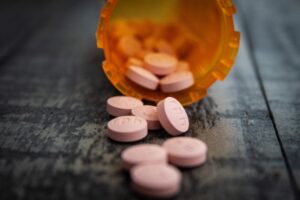
What’s Mectizan? It’s what they first labelled Ivermectin when it was discovered in 1975.
Today, many people are interested in the human health benefits of Ivermectin.
We’re hearing that it’s dangerous. That it’s for horses only. That it has no benefit concerning COVID.
If Ivermectin can help people restore their health and prevent hospitalizations, why are we scrambling the data and confusing everyone?
Look At This
Here’s the data for you to make your own decisions and know what questions to ask.

In 1975, workers at Merck laboratories were looking for therapeutics for veterinary use. They received 54 samples from the Kitsato Institute in Japan including soil samples obtained from a Japanese golf course that contained antiparasitic effects, which they called Avermectin.
In 2011, Ivermectin, a derivative of Avermectin, was called the ” Wonder Drug from Japan” for human use.
The newly discovered compound was a macrocylclic lactone, which is naturally produced in the soil by Streptomyces avermitilis. Merck modified this new compound and labeled it Ivermectin, but marketed it under the name Mectizan.
Clinical trials began in 1981 in Dakar, Senegal where the first person received a single oral dose of Mectizan. The Ivermectin proved to be remarkably effective in humans, leading to a cure for river blindness.
Its safety and effectiveness was so convincing, Merck and the World Health Organization (WHO) pushed the drug into other countries experiencing river blindness. River blindness is not a problem in the United States, but it had been proven to be so remarkably safe and effective, Ivermectin was approved by the American FDA in 1996.
Remember that the first safety trials were performed on people.
By 2001, 15 years after the program began, more than 30 million people were being treated with Mectizan in Africa, Latin America, and in Yemen.
Knowing this data, you decide if it’s safe to use.
Dose Recommendations
I always recommended following the instructions written on your medicine bottles and on OTC packaging, but this is how you can confirm the right dose of Ivermectin for yourself:
- The usual dose for humans is 0.2 mg/kg (milligrams per kilogram; note: .2 mg = 200 mcg)
- That equals 0.09 mg/lb (milligrams per pound) (note: .09 mg = 90 mcg)
- 1 kg = 2.2 lbs
- 0.2 mg divided by 2.2 = 0.09 mg/lb (milligram per pound)

Ivermectin pills come in two doses: 3 mg and 6 mg
- 3 mg divided by 0.09 mg/lb = 33.3 pounds per 3 mg pill
- 6 mg divided by 0.09 mg/lb = 66.7 pounds per 6 mg pill
- Depending on which pills you have, you just divide your weight in pounds by either 33 or 66 and that’s how many pills you take as a dose. But, I would follow the directions on the bottle because the doctor who provided it should have done that for you.
Do your research when it comes to your health, especially if your doctor isn’t willing to help you. That’s pretty important when you find something that has been proven to work for decades, especially if it can help you avoid hospitalization.
As winter approaches, you might consider keeping some in your medicine cabinet just in case …..
_____________
Disclaimer: This article is for informational purposes only, and is educational in nature. The FDA may not have evaluated some of the statements. This article is not intended to diagnose, treat, cure, or prevent any disease. Please discuss with your own, qualified health care provider before adding supplements or making any changes to your dietary program.
Before taking vitamins, consult your doctor; pre-existing medical conditions or medications you are taking can affect how your body responds to multivitamins.
You have our permission to reprint this article if you attribute us with a live back-link to this article and the youtube links. https://janethull.com/